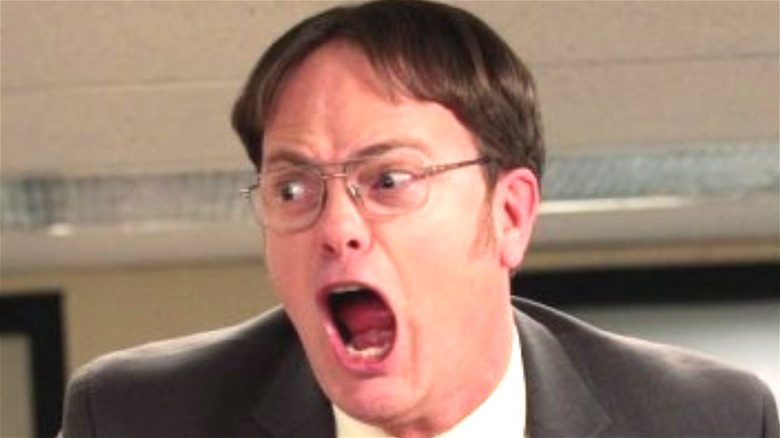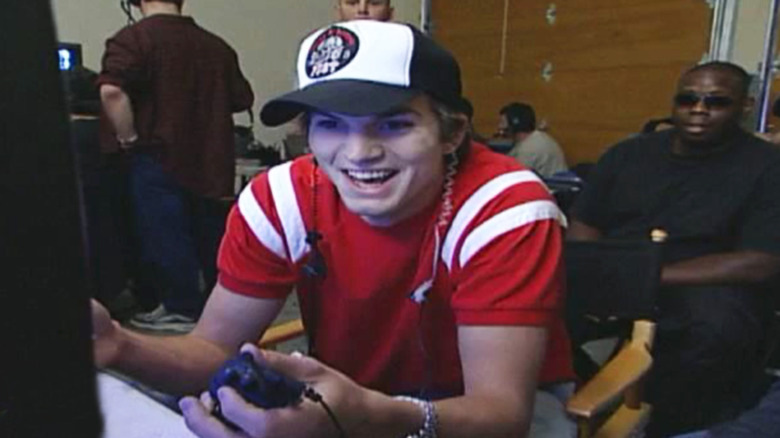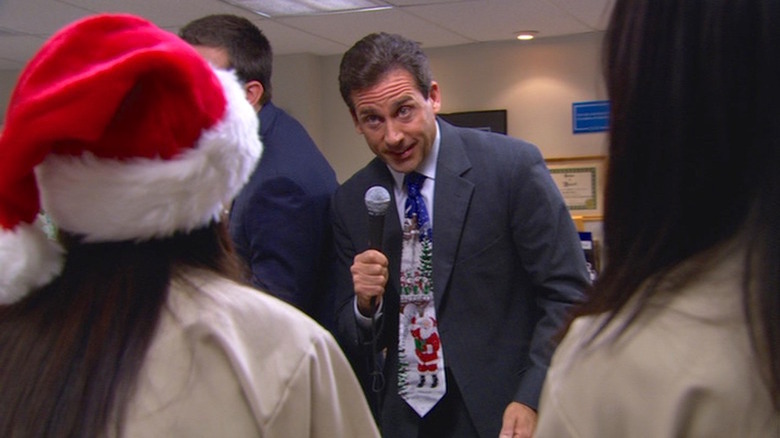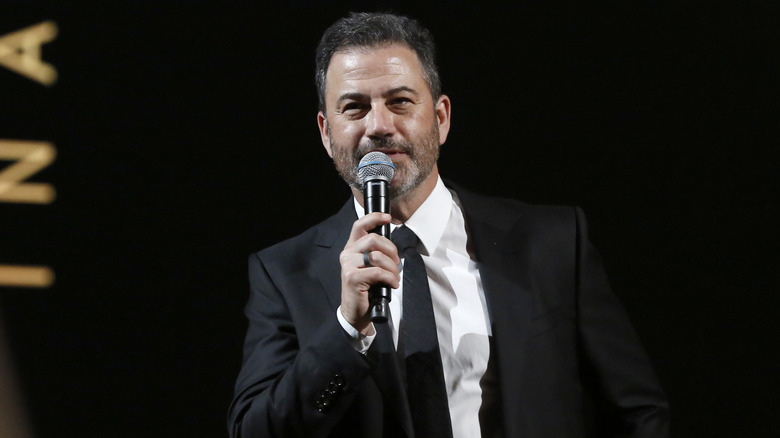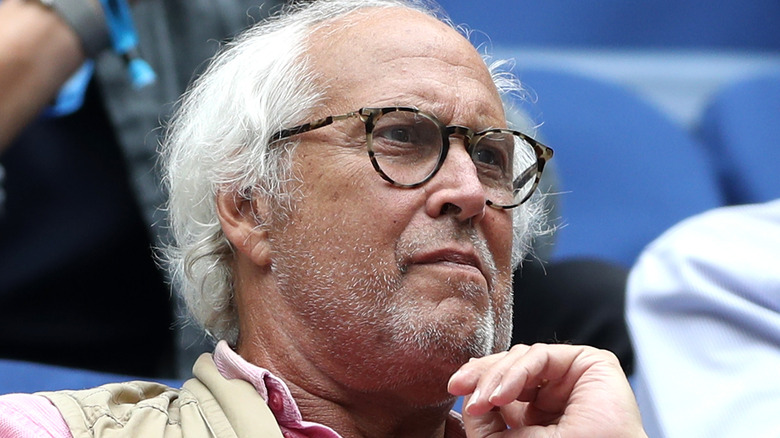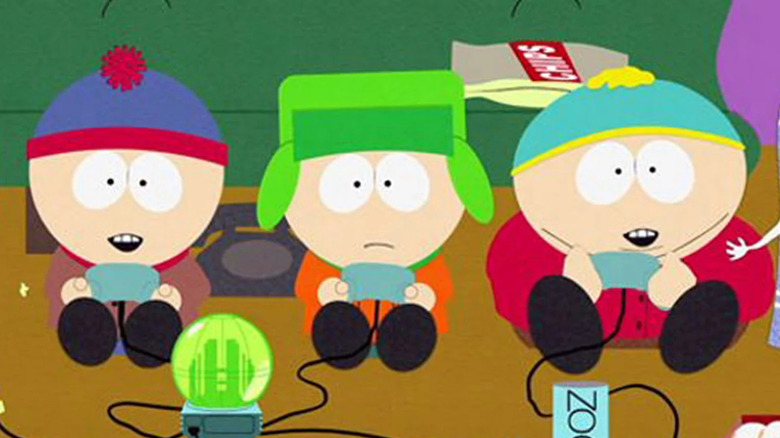TV Jokes That Cost Studios A Ton Of Money
Funding a television show is expensive at the best of times. Even low-budget sitcoms need crews, talent, and everything that entails to bring them to life on our screens, so when unexpected costs pop up, it can be a headache for all involved. Still, mistakes do happen, misplaced investments are made, and projections can be off, all of which can lead to some unexpectedly large bills being racked up.
When it comes to comedy, which in most cases is cheaply and quickly made, budgets are significantly lower than on prestige dramas like "Game of Thrones," and so exorbitance is rarer, but that doesn't mean costs can always be kept down. Whether due to a star's antics or an unlicensed song, the Benjamins can stack up. So, from incurring federal fines to prompting personal lawsuits, here are some of the costliest jokes in television history.
Punk'd lost $300,000 on a failed prank
Prank shows used to be incredibly popular, and none more so than "Punk'd." Hosted by Ashton Kutcher, the show's premise was to put celebrities in comic situations without their knowledge. Some of the pranks could cost exorbitant amounts of cash, as they required not only physical effects such as pyrotechnics, but perfect timing, in order to make them feel real to the target of the joke.
While appearing on "First We Feast," Ashton Kutcher let slip the details of one "Punk'd" prank that went awry, costing the production an eye-watering $300,000. "I can't remember exactly," Kutcher said, "but I want to say there was a special effect that was supposed to go off, that didn't go off." The "Punk'd" team tried to save the prank, but their efforts were in vain. "We couldn't get it to trigger and there was no way to do it." Shaking his head, Kutcher concluded, "We had to just pull."
Licensing rights cost The Office $60,000
"The Office," an American workplace sitcom adapted from its British counterpart, is arguably one of the most influential shows of the 2000s. Having long outlived its shelf time, "The Office" remains ever-relevant and even manages to attract new viewers every time it lands on a different streaming platform. The show's low-budget aesthetic is a large contributor to its charm. The show pioneered the "mockumentary" format, shot with handheld cameras and defined by hard cuts to confessional interviews. Nothing about the show suggests it cost all that much to make, and yet a single joke once cost "The Office" a whole lot of paper, and not the Dunder-Mifflin variety.
In the episode "A Benihana Christmas," Michael Scott (Steve Carell) says a set of lyrics from Eddie Money's "Two Tickets to Paradise." In a confessional cut, Michael says, "I've got two tickets to paradise. Pack your bags, we're leaving the day after tomorrow." Because the lyrics were spoken, one might think that counts as fair use, but according to "The Office" writer Jen Carlotta on an episode of the "Office Ladies" podcast, the writers found out otherwise during the sound mixing phase and were forced to license the song for $60,000.
Jimmy Kimmel was fined $400,000 by the FCC
Following a strange test alert from the national Emergency Alert System (EAS) in October of 2018, which was pushed to every cell phone in the United States, the country began to speculate about the possibility of then-president Donald Trump using the system for his own personal whims. According to the Federal Emergency Management Agency (FEMA), The President "has sole responsibility for determining when the national level EAS will be activated." The mass anxiety that Trump might use the EAS in the same way he once used Twitter led late night host Jimmy Kimmel (who Looper has ranked among the best in the biz) to air a sketch in which emergency alerts about "fake news" and "witch hunts" terrorize the people of New York City.
As it turns out, however, the Federal Communications Commission (FCC), which regulates over-the-air programming in the United States, gets a bit upset when people simulate the EAS tones, even for the purposes of parody, and they slapped "Jimmy Kimmel Live!" with a hefty fine of $400,000 (per Market Watch) for his simulation of the service. The FCC is known to be litigious, and Kimmel's network, the Disney surrogate ABC, paid the fine. Around the same time, the FCC also fined "The Walking Dead" for similar violations.
Chevy Chase was sued for $10 million due to a homophobic joke
These days, Chevy Chase is well-known to be one of the most cantankerous men in Hollywood (per Gawker) The former "Saturday Night Live" star has managed to get under the skin of what might seem like everyone in show business, from Dan Harmon and the cast of "Community" to the late elder statesman of late night, Johnny Carson. But in few instances was Chase's behavior more reviling than when he made a homophobic joke about golden-age leading man Cary Grant on live television, as reported by UPI in 1982, prompting an expensive lawsuit from the "Suspicion" star.
While appearing on an episode of the talk show "Tomorrow" with Tom Snyder in 1980, the host complimented Chase by telling him that he was receiving glowing comparisons to Cary Grant for his recent movie roles. In response, Chase mockingly said he had heard Grant was "a homo," and snarked, "What a gal." The very next day, Grant filed suit.
The suit ended up being settled out of court, with Chase forking over $1 million to Grant (via Marc Elliot's "Cary Grant: A Biography"). Although that might have been a much-needed lesson in grace for some actors, Chase continued to make enemies in Hollywood for the next several decades with his antics.
South Park was sued by a viral YouTuber over a parody of his video
The internet in the late 2000s was in many ways a far more jejune and uncharted place than it is today. The platforms we now take for granted — Facebook, Twitter, etc. — were in their infancy, and the term "viral" to describe an online trend was freshly minted in the popular lexicon, as sites like YouTube provided widely accessible platforms for sharable content. It was in this wild west of internet culture that "South Park," the irreverent adult animation about a group of elementary school children, found itself in when they parodied the viral video, "What What (In the Butt)" by YouTuber and singer Samwell, and found themselves the defendants in a lawsuit filed by the singer.
Samwell alleged that the "South Park" parody of his viral video, which appeared in the Season 12 episode, "Canada on Strike," was not fair use under parody law. The episode featured a musical number by Butters which mimicked the imagery and dance routines from the viral video and contained nearly identical lyrics. Judges, however, disagreed, throwing the case out of court (per The Hollywood Reporter). When Samwell appealed, an independent panel of three judges also refused to advance the case. One judge wrote, "When the two works in this case are viewed side-by-side, the South Park episode is clearly a parody of the original 'WWITB' video, providing commentary on the ridiculousness of the original video and the viral nature of certain YouTube videos." In the end, the case cost Comedy Central some legal fees, which Samwell was ultimately forced to cover. "South Park" has ruffled feathers over the years, but managed to survive, and is now renewed through a jaw-dropping 30th season on Comedy Central.
